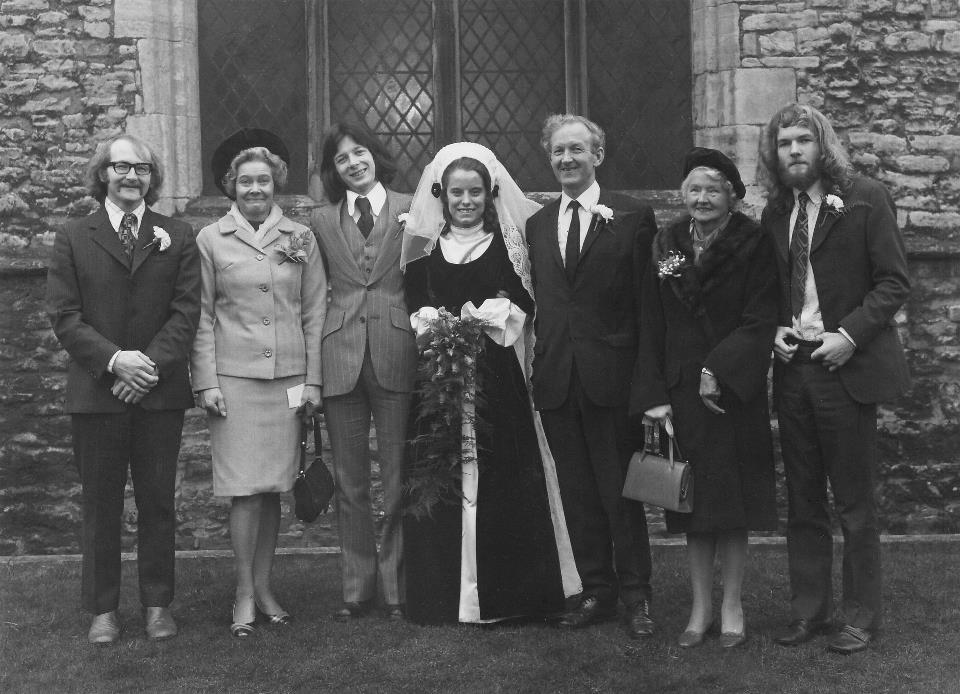wordsout
<
family

Forget-me-nots
When
we first
saw the house, in January
of a record-breaking winter, the garden was
soft
white tissues draping brown iron. Snowdrops
poked through.
The car stuck in its tracks, snowbound
on
that
visit.
The house was a bargain, a year empty,
paint-faded and big enough for a family
of five to lose each other in, the way we did.
At
the
beginning there was stuff to move, things
to buy.
I was ten and excited, there were cats
exploring
and the whole house to clothe from head to
foot,
the fuss of laying carpets, sending us to
school,
a new roof
needed.
Tools were in the shed, my father had no
inclination,
my mother was busy, the garden could wait.
In the spring we first noticed them: no
riot
of weeds,
but hundred-thousands of forget-me-nots,
a frail, pale-blue sea of half an acre. We had
tried
to grow them before, in Scotland,
my mother
said
(they hadn't taken—something lacking
in
the
soil)
but nothing like this shy and blithely massive
occupation.
Whatever grace a single flower might boast was
no insurance
against a spade and boot and the garden
incinerator.
My
father had
his figures. My mother worked
in and outside the house, and bit by bit
put things in order. Two summers
digging
and
burning
all but removed tem. The odd remainder were
uprooted, if they were found. Her husband
saw, in time, the possibilities. They dug
beds for dahlias and red-hot-pokers, laid
more paving, sawed disease from fruit trees.
Lawns were sowed and thickened where weeds
had
been.
My brothers sometimes helped. I rarely,
sat in my room, played guitar and wrote to
friends.
In the evenings my father walked
around
the garden
before tea in his suit, just in from work,
or stood by the tiny stone-slab bridge
across
the stream.
One
brother
left to work; the other married,
earned respect and grew more down to earth,
I learned to write and talk to God, at times
forgot how to do both, and watched my father
go more slow and tolerant as his
heart
grew
tired.
I was ambitious too, but my father read
in travel books and brochures, not somewhere
he might find such as this in an anthology
edited by Alvarez or Edward Lucie-Smith.
Still
the
forget-me-nots bloom
in some forgotten corner of the garden.
Today I have clipped a hedge, aimed at clarity
of diction, phoned up a friend, and thought
of the proper ends of poets (Auden's dead).
My mother is upstairs, in bed. My father too,
twenty miles away in the cardiac ward
at
the age of fifty his body giving up, with a fight;
but even at this late hour I can't think it's right
that (as just now I lit a cigarette
by a taper from the embers of the fire)
I draw a poet's warmth from his last bed
or think of calling this an epitaph.
The house is good as sold. The garden
may seed itself back to forget-me-nots,
and a God who traffics in such miracles,
despite all human effort, may yet decide
these statements form an answerable prayer.
For
my
father, Bob Rust, written in Ilkley, October 4/5
1973. This is the only poem from earlier than 1980
that I have kept.
It was originally published in the
The
photo of the house is taken from the Web in 2011 (when it was sold
again): the back garden is unfortunately hidden. The photo
at the top is a delightful snapshot
from my
brother Graham's wedding to Jo(an) Astbury in Winterton,
© Godfrey Rust, godfrey@wordsout.co.uk. See here for permissions.